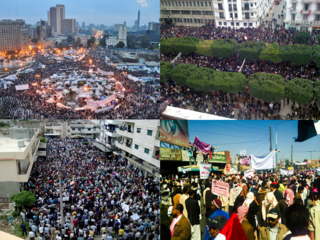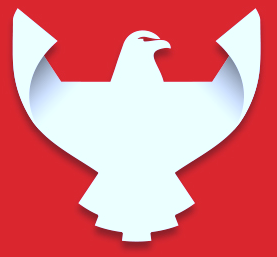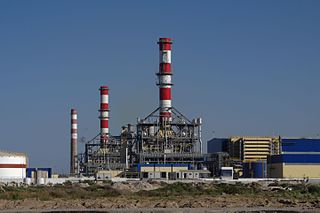| Total population | |
|---|---|
| 130,000 (2016 [1] ) | |
| Regions with significant populations | |
| Languages | |
| Arabic (Tunisian Arabic), French and Italian | |
| Religion | |
| mainly Sunni Islam but also Irreligious and Atheism |
The presence of Tunisians in Italy dates back to the 1980s.
| Total population | |
|---|---|
| 130,000 (2016 [1] ) | |
| Regions with significant populations | |
| Languages | |
| Arabic (Tunisian Arabic), French and Italian | |
| Religion | |
| mainly Sunni Islam but also Irreligious and Atheism |
The presence of Tunisians in Italy dates back to the 1980s.
In 2014 in Italy there are 96,012 regular immigrants from Tunisia. In 2006 there were 88,932. The three cities with most number of Tunisians are: Rome, Mazara del Vallo and Vittoria. [2]

Tunisia, officially the Tunisian Republic, is the northernmost country in Africa. It is a part of the Maghreb region of North Africa, and is bordered by Algeria to the west and southwest, Libya to the southeast, and the Mediterranean Sea to the north and east; covering 163,610 km2 (63,170 sq mi), with a population of 11 million. It contains the eastern end of the Atlas Mountains and the northern reaches of the Sahara desert, with much of its remaining territory arable land. Its 1,300 km (810 mi) of coastline include the African conjunction of the western and eastern parts of the Mediterranean Basin. Tunisia is home to Africa's northernmost point, Cape Angela; and its capital and largest city is Tunis, located on its northeastern coast, which lends the country its name.

Mazara del Vallo is a town and comune in the province of Trapani, southwestern Sicily, Italy. It lies mainly on the left bank at the mouth of the Mazaro river.

Arab diaspora refers to descendants of the Arab emigrants who, voluntarily or as refugees, emigrated from their native lands to non-Arab countries, primarily in Central America, South America, Europe, North America, and parts of Southeast Asia, the Caribbean, and West Africa. In a more specific view, emigrants from Arab countries, such as Sudan or the Palestinian territories, also make up important national groups of their countries' diaspora in other Arab states, such as the Gulf states or Saudi Arabia.
Tunisian people, or Tunisians, are a Maghrebi ethnic group and nation native to Northern Africa, who speak Tunisian and share a common Tunisian culture and identity. In addition, a Tunisian diaspora has been established with modern migration, particularly in Western Europe, namely France, Italy and Germany. The overwhelming majority of Tunisians are of Berber descent.

Marco Tronchetti Provera is an Italian businessman. Chief Executive Officer of Pirelli & C. S.p.A. since 1992 and Executive Vice Chairman since 20 October 2015 and Chairman of Marco Tronchetti Provera & C. S.p.A., a holding which he controls and which indirectly holds 50% of Camfin S.p.A.. Camfin, indirectly, holds 41% of Marco Polo Industrial Holding S.p.A., the major shareholder who controls Pirelli & C. S.p.A. Pirelli was sold to ChemChina, a state-owned Chinese company in 2015, however, Tronchetti Provera was retained.
Turks in Italy, also referred to as Turkish Italians or Italian Turks, refers to Italian citizens of full or partial Turkish origin. Although some Turks came to Italy as Ottoman migrants, the majority of Italian Turks descend from the Republic of Turkey; moreover, there has also been Turkish migration from other post-Ottoman countries including ethnic Turkish communities that have moved to Italy from the Balkans, the island of Cyprus, North Africa and, more recently, Iraq and Syria.
Project Runway Middle East, is the Arabian version of the successful American reality TV show Project Runway. The show premiered on September 4, 2016 on MBC Group. The show features 12 Arabian designers who compete to become "the next big Arab designer". The contestants compete with each other to create the best clothes and are restricted in time, materials and theme. Their designs are judged, and one or more designers are eliminated each week. During each season, selected competitors are progressively eliminated based on the judges' scores until only a few contestants remain; these finalists prepare a complete fashion collection, from which a winner is determined. Each episode welcomes a celebrity guest judge that will contribute in the decision making.

The Tunisian Revolution, also called the Jasmine Revolution, was an intensive 28-day campaign of civil resistance. It included a series of street demonstrations which took place in Tunisia, and led to the ousting of longtime president Zine El Abidine Ben Ali in January 2011. It eventually led to a thorough democratisation of the country and to free and democratic elections.

The Arab Spring was a series of anti-government protests, uprisings, and armed rebellions that spread across much of the Arab world in the early 2010s. It began in response to corruption and economic stagnation and was influenced by the Tunisian Revolution. From Tunisia, the protests then spread to five other countries: Libya, Egypt, Yemen, Syria, and Bahrain, where either the ruler was deposed or major uprisings and social violence occurred including riots, civil wars, or insurgencies. Sustained street demonstrations took place in Morocco, Iraq, Algeria, Iranian Khuzestan, Lebanon, Jordan, Kuwait, Oman, and Sudan. Minor protests took place in Djibouti, Mauritania, Palestine, Saudi Arabia, and the Moroccan-occupied Western Sahara. A major slogan of the demonstrators in the Arab world is ash-shaʻb yurīd isqāṭ an-niẓām!.

Mohamed Beji Caid Essebsi was a Tunisian statesman who was the President of Tunisia from 31 December 2014 until his death on 25 July 2019. Previously, he served as Minister of Foreign Affairs from 1981 to 1986 and as Prime Minister from February 2011 to December 2011.

The Free Patriotic Union, known by its French acronym UPL, is a political party in Tunisia.

Slim Riahi is a Tunisian businessman and politician. He was the founder and leader of the Free Patriotic Union (UPL).

Nawaat is an independent collective blog co-founded by Tunisians Sami Ben Gharbia, Sufian Guerfali and Riadh Guerfali in 2004, with Malek Khadraoui joining the organization in 2006. The goal of Nawaat's founders was to provide a public platform for Tunisian dissident voices and debates. Nawaat aggregates articles, visual media, and other data from a variety of sources to provide a forum for citizen journalists to express their opinions on current events. The site does not receive any donations from political parties. During the events leading to the Tunisian Revolution of 2011, Nawaat advised Internet users in Tunisia and other Arab nations about the dangers of being identified online and offered advice about circumventing censorship. Nawaat is an Arabic word meaning core. Nawaat has received numerous awards from international media organizations in the wake of the Arab Spring wave of revolutions throughout the Middle East and North Africa.
Afef Ben Ismail is a Tunisian sprint canoeist.

Afef Jnifen is a Tunisian-born Italian fashion model, actress and television presenter.

The Voice of the People of Tunisia is a Tunisian political party, founded in June 2014 by Larbi Nasra, a media entrepreneur, founder and former owner of Hannibal TV station and in-law of former President Zine El Abidine Ben Ali. The name is a reference to the advertising slogan of Nasra's TV station. The party's 6 members in the Constituent Assembly had defected from other parties. Larbi Nasra is the party's candidate in the 2014 presidential election.
The Tunisian diaspora refers to people of Tunisian origin living outside that country. It is the direct result of the strong rate of emigration which Tunisia has experienced since its independence in 1956. In the 1960s and 70s, the favourable economic situation in France increased the phenomenon. The beginning of the 1980s saw the clear development of a Tunisian community in that country as a result of the large number of people.
Shukri Mabkhout, also transcribed Choukri Mabkhout, is a Tunisian academic, critic and novelist. His 2014 debut novel, al-Talyānī, won the International Prize for Arabic Fiction and has been translated into English and Italian.
Afaf (عفاف) is an Arabic language feminine given name.

The energy sector in Tunisia includes all production, processing and, transit of energy consumption in this country. The production involves the upstream sector that includes general oil and gas, the downstream sector that includes the only refinery in Tunisia and most of the production of natural gas, and varied electrical/renewable energies. Renewable energy has been a strong point of focus for Tunisia as they look to optimize their green energy sources and advance their developing country. The Tunisian government has partnered with Russia and France in hopes of establishing nuclear energy as a viable alternative to fossil fuels and taking up a nontrivial chunk of the energy production in Tunisia. This is expected to be accomplished in the 2020's.